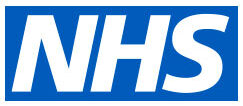What is a Minor Eye Conditions Service (MECS)?
Symptoms that can be seen under the service include:
• Red eye or eyelids
• Dry eye, or gritty and uncomfortable eyes
• Irritation and inflammation of the eye
• Significant recent sticky discharge from the eye or watery eye
• Recently occurring flashes or floaters
• In-growing eyelashes
• Recent and sudden loss of vision
• Foreign body in the eye
If you have very minor symptoms you may be advised to self care or seek support from your local pharmacy first.
Please note, this is not a sight test. Also, if you have a major eye condition that is being regularly monitored by your
optometrist or hospital eye service, this will not be covered by this service; for example, cataracts, diabetic retinopathy or glaucoma.
Where should I go?
An appointment will normally be required – whether virtually (telephone or video) or face to face, so please telephone first. Appointments are available during normal working hours and some practices offer appointments in the evenings and at weekends. Not all practices have an optometrist available every day, but if they don’t, they will be able to find you an alternative appointment nearby.
Who is this service for?
If you are registered with us you can use this service. It is for people of all ages – adults and children. Children under 16 years must be accompanied at their appointment by an adult.
How do I book an appointment with the service?
To make an appointment, call one of the participating optical practices. A local participating practice can be found online at: primaryeyecare.co.uk/find-a-practice.
You will be asked some questions about your symptoms in order to assess how quickly you need to be seen by the service, which will be within 24hrs in urgent cases and within a few days for non-urgent cases. You maybe be contacted by a clinician to discuss your symptoms further either via phone or video call first.
Please take your glasses and a list of your current medication with you to the appointment. The optometrist may put drops in your eyes to enlarge your pupils in order to get a better view inside your eyes. You should not drive until the effects of these drops have worn off, which may take a few hours. If your condition is more serious, the optometrist will book you an urgent appointment at a hospital eye clinic. If you need a routine appointment with a hospital, the optometrist will organise this for you. You may also be advised to make an appointment with your GP if your eye condition is in relation to your general health.
Will the service cost me anything?
If you are registered with us, the consultation is FREE. Please note that over the counter medications are chargeable, so is the cost of an NHS prescription (unless you are exempt). The optometrist will make you aware of any charges before issuing the medication

